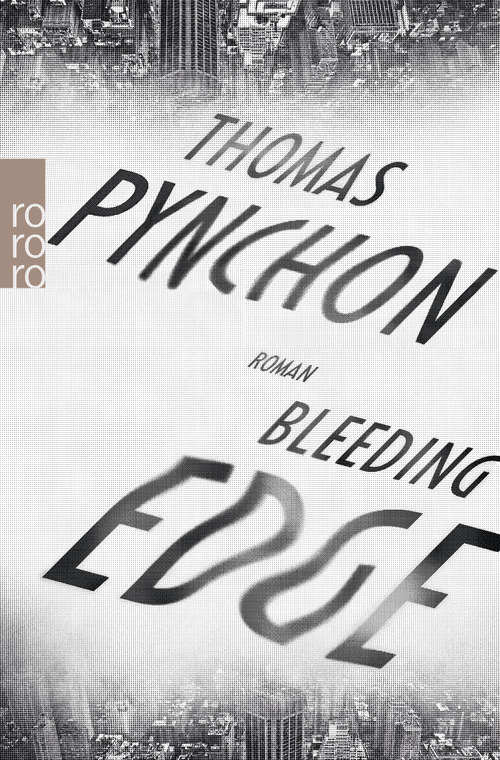

If these rockets had been not been V-2s but further developed versions of the “Enzian,” it would have been, quite literally, Rilke descending onto London.

The direct reference of Pynchon’s opening sentence are the German V-2 rockets that rain death onto London during the war 517 times. For beauty is nothingīut the beginning of terror, which we still are just able toĮndure, and we are so awed because it serenely disdains Suddenly against his heart: I would be consumed Hierarchies? and even if one of them pressed me Who, if I cried out, would hear me among the angels’ There is reason to believe, then, that in the famous first sentence of Gravity’s Rainbow, “A screaming comes across the sky,” one can hear echoes of the first lines of the Duino Elegies. Wurster,” whose development was discontinued in 1945, was called the “Enzian” (Enzian 1-4). Pynchon’s positioning of Rilke deep into the German soul is indeed “striking” on the background that a German ground-air rocket, developed by a German engineer with the eminently Pynchonian name “Dr. No wonder that Enzian’s dreams are “dreams of the Tenth Elegy angel coming, wingbeats already at the edges of waking, coming to trample spoorless the white marketplace of his own exile” (341). Galina, the lover of Enzian’s half-brother Tchitcherine, considers Enzian to be pure Rilke: “These tall, these star-blotting Moslem angels… O, wie spurlos zerträte ein Engel ihnen den Trostmarkt … He is constant back there, westward, the African half-brother and his poetry books furrowed and sown with Teutonic lettering burntwood black” (341). In Africa’s Kalahari desert, Weissman starts a sexual relation with a young Herero boy who will, during and after the war, roam the German Zone as part of the mysterious “Schwarzkommando.” Weissman, “in some sentimental overflow, some precognition, gave his African boy the name ‘Enzian,’ after Rilke’s mountainside gentian of Nordic colors, brought down like a pure word into the valleys” (101). “Idealism is no good,” Pynchon once noted, “a concrete dedication to an abstract condition results in unpleasant things like wars.” 1. “ere was the Angel: ice crystals swept hissing away from the back edges of wings perilously deep, opening as they were moved into a new white abyss…” (151). The coupling of a holy desire for metaphysics with the unholy desire for rationalization, control and destruction is figured by the twofold destination of the rocket as both metaphysical rocket and destructive projectile, as shown in the description of the bombing of Lübeck on Palm Sunday. Weissman’s Rilkezation is part of Pynchon’s staging of the tragic amalgamation of romanticism and rationality in the German soul.


It’s he, Blicero, who climbs the mountain, has been so climbing for nearly 20 years, since long before he embraced the Reich’s flame, since Südwest…alone. Und nicht einmal sein Schritt klingt aus dem tonlosen Los … Of all Rilke’s poetry it’s the Tenth Elegy he most loves, can feel the bitter lager of Yearning begin to prickle behind eyes and sinuses at remembering any passage of … the newly-dead youth, embracing his Lament, his last link, leaving now even her marginally human touch forever, climbing all alone, terminally alone, up and into the mountains of primal Pain, with the wildly alien constellation overhead… And not once does his step ring from the soundless Destiny…. Many Rilkean references center on Oberst Weissmann “a Wandervogel in the mountains of Pain” (99) whose mother gave him, when he is ordered to South-West Africa in 1923, Rilke’s newly published Duino Elegies as a present: The “Leid-Stadt” is set against the “Raketen-Stadt,” the “Mittelwerke” where the V-2s are assembled. O, how an Angel would utterly trample their market of solace,īounded by the Church, bought ready for use: Swaggers: the gilded noise, the flawed memorial. Stillness, the statue cast from the mould of emptiness bravely Where, in the artificiality of a drowned-out false Strange, though, alas, the streets of Grief-City, Rilke” (644) the narrator notes evoking the Tenth Elegy of Rilke’s Duino Elegies. “There is a mean poem about the Leid-Stadt, by a German man named Mr. Pynchon’s 1973 novel Gravity’s Rainbow, most of which is set in the German ‘Zone’ during and shortly after WW2, is pervaded by references to the German poet Rainer Maria Rilke. In contrast to narratives of posttraumatic melancholy, Berressem argues that Bleeding Edge is a “Jeremiad about the fall and the sins of America.” The result is an essay that makes a powerful case for Pynchon as a prophetic, if brutal, witness to American society turning towards security and control in the shadow of tragedy. In “…without shame of concern for etymology,” Hanjo Berressem discusses Pynchon’s Bleeding Edge in the context post-9/11 fiction.


 0 kommentar(er)
0 kommentar(er)
